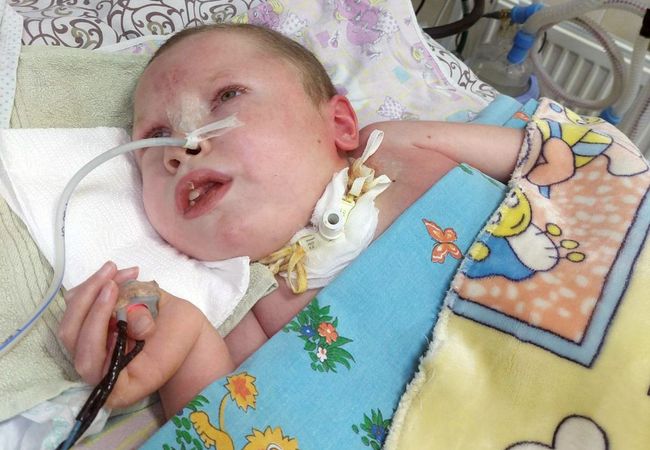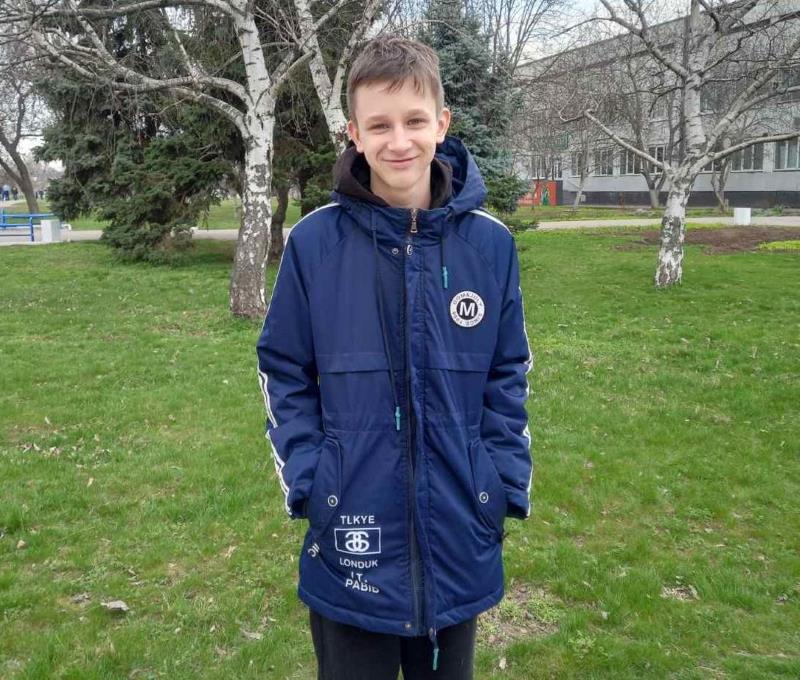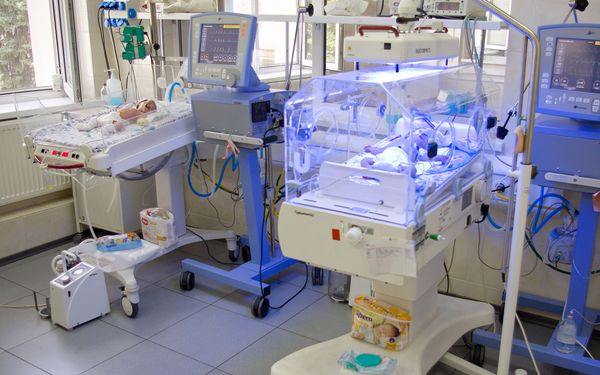Some people that help the orphanages with goods are disappointed. They find out that the state system of orphanages is the black hole that swallows up all invested funds. How else can you help? Every orphanage and asylums have a so-called вАЬguest routineвАЭ when an adult takes a kid to his home. For a couple of hours. And maybe for the whole summer.
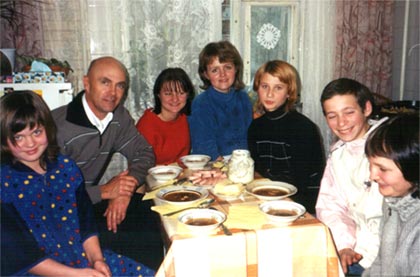
Something must be done!
Everyone I talked to regarding вАЬguest routineвАЭ began with the intention to help orphans from the orphanages and asylums. вАЬSomething must be done!вАЭ вАУ this thought was not leaving Olga Ovodova from Moscow region alone, and she understood what she had to do, - she joined a group of volunteers who was helping a local orphanage: they were hosting classes for kids, taking them to the church. Olga went further: she started taking kids to her home for a short stay after service.
Taking kids home for a short stay is a simple and effective way to help orphans, itвАЩs available to almost anyone. First, an adult can invite a kid when itвАЩs convenient to him/her. вАЬGuest routineвАЭ doesnвАЩt mean further adoption or special relations. ItвАЩs just a friendship with a kid. But IвАЩm not going to hide it from you: very often an adult gets attached to a kid and take him to his/her family.
Secondly, itвАЩs important to a kid whoвАЩs used to be in the four walls and communicate only with the other orphans to find out what the world looks outside the walls of the orphanage.
While visiting the family he can see what the relationships are there. ItвАЩs extremely important, because only 20% of orphanage graduates create their own families, and usually these are children who know what family is from their own experience. Besides, the kid this way gets an adult whoвАЩs interested in him, does something for him. A kid visiting a family gets to know a lot: adults take him somewhere, show him something, and tell something. For example, they find out what the bath is, there are only showers in orphanages! Because not only knowledge but also impressions are very important for the personal development.
Adoption specialist, Galina Krastitskaya, a methodologist of the School of Foster Parents, recommends inviting kids not younger than 7 years old, itвАЩs easier to explain to a kid, that heвАЩs not going to stay in the family forever. Younger children could just not understand it.

LetвАЩs start from the beginning
Where should we start? Olga Ovodova recommends doing what she did: join the volunteers who already work with an orphanage. This way itвАЩs easier to get in touch with the management, you wonвАЩt have to explain who you are and why you came. Volunteers may be found through the Internet (for example, adoption discussion boards) or in churches where communities help orphans.
Of course, itвАЩs much easier to choose an orphanage in your neighborhood so you donвАЩt have to make a kid ride the overcrowded public transport. To do that you can turn to local adoption authorities usually located at the local municipal administrations.
Then a lot depends on the management of the orphanage. Of course, the director can reject your help. But usually they donвАЩt mind when an adult wants to take a kid home for a visit. Usually it happens in orphanages, which exercise patronage fosterage. Guest routine is not a prerogative of some special orphanages; itвАЩs used in many orphanages, including asylums. Conditions on which you are allowed to take a kid home also depend on the director. You can take a child to church based on simple written request addressed to the director where you indicate your passport information.
If you want a child to visit your home, especially for a longer period of time (with a sleepover, for instance) you will have to obtain a permission letter from local custody authorities. Here is an intricate moment, because legislation did not establish a lit of documents based on which this permission can be issued. Usually custody authorities send an official to inspect the conditions where the person inviting a child lives. But they also can request a full list of documents needed for adoption. Then based on the letter from the custody authorities orphanage management will give you a child for an agreed period of time.
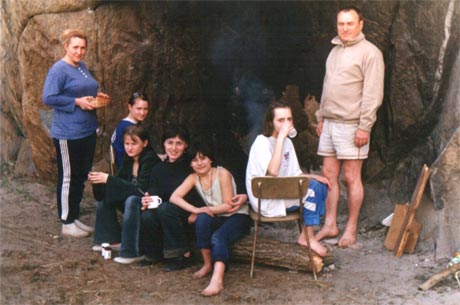
How you can entertain your guests
ItвАЩs easier to take kids on weekends, during holidays and school breaks. The latter is the most important for the children who do not have any relatives, because all they can do during the break is just sit on one spot at the orphanage. Galina Krastitskaya recommends working out a schedule in advance. You can take a kid to the circus and the theatre. You can go to the country-house, set up a picnic, play ball outdoors. Table games are great too. Video cartoons are not such a good idea; they have enough of those at the orphanage. Galina Krastitskaya does not recommend taking more than one child. This way you can fully concentrate on one kid, and, secondly, itвАЩs psychologically hard to deal with several orphans at the same time. But there are exceptions.
It happened that once Elena Volkova, who lives in Moscow, a mother of two boys, took four orphan boys for a visit for winter break. вАЬI wanted to take just one kid, but I understood that he will be uncomfortable in a new place by himself, and I decided to take his friend too,вАЭ вАУ says Elena. People usually take kids for school breaks, thatвАЩs why the choice of вАЬavailableвАЭ friends was very limited вАУ a boy that had two older brothers. And Elena without any further hesitations took all four boys. вАЬWe were getting along just great, they were quite, they behaved, they helped bringing bags from grocery stores, played with the babyвАЭ, - says Elena who then had a one and a half year old son. During ten days the children were with Elena, they went to the circus, play-center, to the movie theatre, walked in the woods, read, drew. They also liked to take long baths with bath foam.
Marina Nefedova from Moscow region takes children to the closest to the orphanage church on Sundays. After church she took three or four kids home. вАЬAt home we have fish and parrots. We donвАЩt usually give food to fish the day children are going to be here, - we leave it for them to do. They like taking care of live creatures,вАЭ вАУ says Marina ".
Svetlana Kevorkova who has been taking kids to her home after church for several years now, recommends cooking the meal together: вАЬChildren like cutting vegetables or fruit for salads. They canвАЩt do housework in the orphanageвАЭ.
Olga Ovodova sums up:
"You can entertain children as you want. Most likely you have a hobby, you can do something. At least make flowers out of napkins!"
Pitfalls
"Once after I took children back to the orphanage I found out that money - 140 rubles - were missing from my purse. I thought who it could be and went back to see that boy and said: "You know, the money that was in my purse went missing! Here in the orphanage you will eat your meal, and my kids will be hungry ". He got serious: "Really?.. Well, IвАЩll help you. My granny is coming to see me tonight, come back when she leaves, IвАЩll ask her to give me money for you ". And you know, he gave it back!" вАУ says Marina. I must say, this is the only mentioning of theft I heard while I was preparing the story. And nevertheless, when you invite a kid home, youвАЩd better put away all valuables in order not to confuse the kids.
Oksana, visitor of one of Moscow churches, complains that she often has to raise her voice when she talks to kids when they are visiting, and she really doesnвАЩt want it to do. Galina Krastitskaya thinks that itвАЩs a usual thing and she even recommends working out your own вАЬcommand voiceвАЭ. Kids in orphanages are used to adults raising voices at them and they think if an adult speaks silently and quite itвАЩs a sign of weakness.
Svetlana is complaining that children may suddenly lose an interest to something, refuse to help вАУ for example, to wash their dishes after lunch, however before they liked doing it. Anna Egorova, a teacher from the art studio for orphans located near Moscow, who often takes kids orphans for a visit, recommends distinct division of all duties. For example, keep a schedule of duties at home. And also kids have to understand if adults donвАЩt like something in their behavior, they may not be invited again. Also, Anna recommends not giving up attempts to evoke interest in a kid to what he has to do. For example, try telling him something interesting about what heвАЩs required to do.
Oskana told us how a girl who was visiting her was always saying: "I come here only because you buy me things". This kind of an attitude should not be allowed. Children have to value what they get; they have to understand that a gift is something special. You donвАЩt have to give them anything big and expensive, for example, a bike or a cell phone. Everything they get for free will be either broken or taken away by older kids in the orphanage.
Opponents of guest routine think it traumatizes childrenвАЩs mentality вАУ having visited the family he has to come back to the atmosphere of an orphanage. "We go on vacations, and then we come back. Maybe we shouldnвАЩt go on vacations so we can avoid the stress?" вАУ comments Galina Krasnitskaya.
And now probably the most difficult moment вАУ what should you do with requests to stay? Almost everyone who takes kids home have to deal with this. ThatвАЩs why we recommend taking kids who are older than 7 years so that they can understand what itвАЩs all about. Galina Krastiskaya recommends using a calendar where you can mark days when a kid first came to your house and how many days he has left. "Of course, every time I heard: "Aunt Marina, aunt Marina", but without any enthusiasm, it was more a formality", - says Marina Nefedova. A kid has to be explained that he canвАЩt come and stay in the family forever вАУ a sick mother, not enough space in the apartment, etc.
WhatвАЩs more important, says Galina Krasnitskaya, is not to lose a touch with a kid. Especially, if you took a kid to your home for several times already. "Leaving him at the orphanage, tell him: "IвАЩll come to see you onвА¶вАЭ So he doesnвАЩt hear вАЬmaybe. If you canвАЩt come on a promised day, itвАЩs better to tell in advance, explain the reason. The kid who visits the family feels more confident, acts differently towards teachers and other children. And he feels more pain if suddenly he gets abandoned once again.
Anna Palcheva, Neskuchnyi Sad magazine

